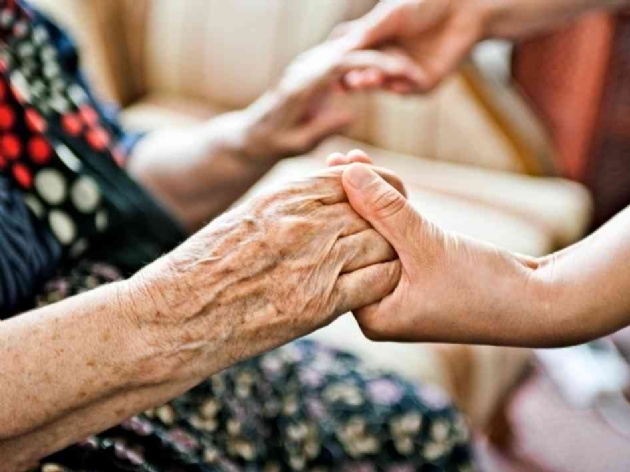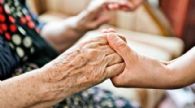Who is a caregiver for the elderly?
A caregiver for the elderly is a person who invests
his/her time without pay in order to provide care and regular support to a
loved one; he/she may have a significant or chronic disability such as cognitive
decline (dementia, Alzheimer's, Parkinson etc.), an illness (physical and /or
mental), cancer or even loss of function associated with aging (difficulty with
mobility, visual impairment/hearing, etc.).
How does one become a caregiver for the elderly?
Becoming a caregiver for the elderly happens gradually
and sometimes in a subtle way. The tasks and responsibilities associated with
this role build up over time and increase as the elderly person’s autonomy
decreases. Thus, the caregiver faces a constantly changing reality, for which
he/she was not necessarily prepared and needs to adapt accordingly.
What are the tasks that a caregiver is expected to perform?
Depending on the health of the elderly relative, his/her
abilities and the level of autonomy, the caregiver is required to perform one
or many diversified tasks. The caregiver may be involved in one or more aspects
of care such as helping with meals, bathing, dressing and exercising or even making
important health decisions. Beyond personal care, the caregiver may be involved
in shopping, banking, housekeeping, transporting and accompanying the elder to appointments.
Why is it important for a caregiver to use the
services at his/her disposal to support his/her role?
Taking care of a loved one with loss of autonomy
requires a lot of energy. When the tasks and responsibilities accumulate, the
signs of stress and fatigue become apparent, increasing the risk of burnout. Requesting
help becomes much more difficult. It is, therefore, essential for a caregiver
to have a network of people that will support him/her when the tasks and responsibilities become overwhelming. Moreover, by using existing services, caregivers can
benefit from a better conciliation between family and career, ―which is a
prevalent problem― maintain a better quality of life, and still keep a healthy relationship
with the person he/she is caring for.
Where can a caregiver for
the elderly go to access the services that are at his/her disposal?
L’Appui pour les proches
aidants d’aînés is committed
to anyone who willingly sacrifices time and energy to provide homecare and assistance for an elderly person. Their free helpline,
the Ligne Info-aidant, offers
references and advice to help caregivers find the support they need. They also
have a website (lappui.org) that offers information, answers to their
questions and a directory of resources available in different areas.
How does L’Appui
pour les proches aidants d’aînés help support caregivers for the elderly in
Laval?
There
are currently 17 regional L’Appui pour les proches aidants d’aînés across Quebec, including one in Laval. Caroline
Quarré, a qualified caregiver’s specialist, answers the calls on the Ligne Info-aidant in the Laval area and
offers to follow up in order to ensure they receive and use all available
resources at their disposal.
CAREGIVER INFORMATION HELPLINE; 1 855 8LAPUI (1 855 852-7784)
INFORMATION AND REFERENCES TO;
L’Appui pour les proches
aidants d’aînés Laval
can refer caregivers to the following types of services;
Services for the caregivers themselves
- Respite (occasional, regular )
- Psychosocial support (individual, family )
- Support groups for caregivers
- Help understanding and accepting a diagnosis
- Family mediation
- Assistance in opening a file at the CLSC
- Housekeeping Services
- Nutrition and meals on wheel
- Adapting the home
- Accompanying the elder to medical appointments (for occasional and/or regular appointments)
- Paratransit (help with the application form)
- Request for assessment (occupational therapy, physiotherapy, psychosocial)
Legal matters
- Mandate in case of incapacity
- Will and general power of attorney
- Power of attorney for bank transactions
Home services
- Assistance in financial matters
- Tax credits
- Water tax exemption
- Income tax reports
- Medical equipment purchases

 In The Latest Issue:
In The Latest Issue:


 BY:
BY: 

Tweet
Share